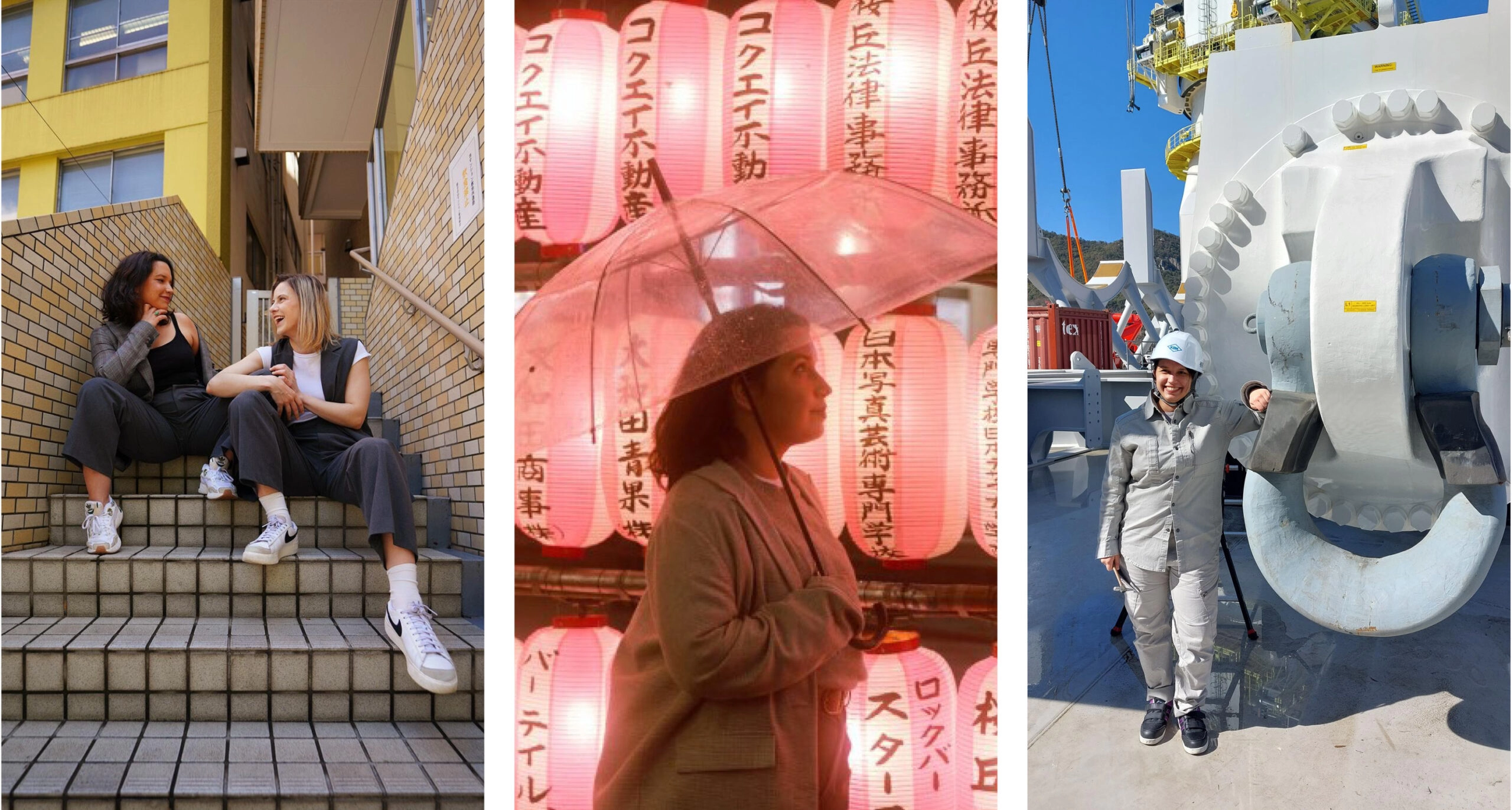
News
Diana’s Story: A Secondment in Japan
- 27 July 2023
- News
While TWD was first established in The Netherlands, we have gradually branched out to form flourishing offices (and partners) across the globe. Earlier this year, one of our Project Engineers, Diana, set out on an adventure, joining our partner TWD Japan at their office in Tokyo. During her three month stay, Diana shared her expertise in offshore wind, reinforced the sales department, and immersed herself in the foreign culture and the experiences therein.
Grabbing the Opportunity
I had just started working at TWD about three months prior, when I caught a glimpse of an exciting opportunity. Management were searching for somebody to take temporary residence at our partner office in Japan. Despite being new to the company, I knew this was not an opportunity I could willingly pass up. The opportunity in question presented itself sooner than expected. Shortly before Christmas, I received news that my wish was to become a reality. I was going to work at our partner office in Japan! The plan was for me to leave for Tokyo in mid-February. The official confirmation arrived just a month prior, leaving me with only four weeks to prepare for the journey.
Adventure Preparations
It was instantly clear to me that the Japanese culture differed to the culture at home, however the full extent of these differences began to come to light once I started preparing to leave. It turned out that, after working for years in companies with a relaxed dress code, I had absolutely nothing to wear and no idea of what would be considered appropriate. As luck would have it, I happened upon a Polish woman through Instagram, who was currently living in Japan. I was able to ask her questions about the Japanese work culture and life in general. She helped me to create a brand new business-ready wardrobe. Three days after my arrival it was also my birthday, and I would have spent it alone, were it not for her accompanying me for a birthday dinner (during which, as my birthday is on Valentines Day, we were immediately assumed to be a couple by the restaurant’s staff!). Since then, she has become one of my dearest friends, and we ended up spending most of our free time together during my stay.
Although I arrived having received an introduction to Japan from my colleagues, and having read articles and listened to podcasts about the subject – all of which mention not to expect anyone to speak fluent English – it was still quite an adjustment. I quickly realised that even in areas considered international, English was limited to predictable conversation, and the normalisation of speaking English in the West was not necessarily the norm in the East. Finding myself in a situation where I knew no-one, could not read any of the signs, and struggled to communicate even the basics, felt quite isolating at times. Nevertheless, I was lucky to have helpful colleagues and my Polish friend around me to translate and contextualise.
Overcoming Difficulties in Life and Work
Navigating the city was a whole different obstacle: Tokyo station is very complex and covers a large area underground. Although I had only to cross from one side of the station to the other, I did not take the same route twice for the first three weeks – not because I didn’t want to, but because I could not find my way back. We also used the underground to get to our lunch destination, and unfortunately the one time I attempted the return journey alone, I found myself lost in the maze for over 40 minutes. Only after landing on the seventh floor of a peculiar looking building (called Otemachi building, not my desired destination “Shin” Otemachi), I decided to go outside again and follow the route with google maps. I was gone for over 1.5 hours. After that, there was always someone to accompany me to and from lunch.
Office life in Japan was quite distinct from any previous experience I had. As a young female engineer, helping to solve technical problems or conducting workshops for older men was unusual to say the least. However, it was never an issue. In fact, I felt highly respected and always appreciated. Even if we didn’t quite agree on certain issues, the kindness of my colleagues never ceased to amaze me.
In the end, the most challenging aspect of these situations was always the intercultural communication. The communication styles could not be any more different in Japan than they are in the Netherlands. Comments are rarely made directly, and decisions and actions are rarely confirmed in writing: communication is based on trust rather than hard evidence. There are good times to ask a question (the best of which being the evenings at Izakaya) but I learned that there are also bad times. It takes a lot of sensitivity and patience to come to an answer. However, succeeding at it is very rewarding. It was a fantastic, humbling, and educational experience, that I will forever be grateful for.”

Diana | Project Engineer at TWD
Share this article on